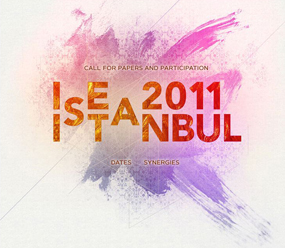Panelist, “Voicing the electronic arts, ISEA Istanbul 2011, Friday, 16 September, 2011 – 09:00 – 10:30
Machinima as a Political or Artistic Detournement of Video Games by Isabelle Arvers
This paper presents Machinima as a political or artistic detournement of video games. By using virtual spaces and changing perspective as an artistic strategy, machinima allow a distanced critique of a simulated world. They tend to erase the boundaries between reality and fiction and redefine the transgressive power of the game.
Chair Person : Norie Neumark Presenters : Nermin Saybasili, Igor Stromajer, Isabelle Arvers
Location : Sabanci Center Room 1, Sabanci Center, Levent
There is an uncanny quality to voice in electronic arts, viscerally carrying bodily intimacies to the listener through physical spaces, yet dislocated from the speaker’s body through reproduction and transmission. The digital voice is paradoxically human and machinic – intimate and intense, as it connects subjectivities on the one hand and the digitally abstract on the other hand, as it passes through machines on to the other. Whether voices call to us across the internet, or across the smaller space of an installation, or from the small screen of machinima, media artists have found this paradoxical and uncanny quality alluring and have worked with it across a range of media and emotional ranges. While voice is often discussed in a political and metaphorical sense (giving people a voice through media) the aim of this panel is to address the aesthetics of voice in media art.
Machinima as a Political or Artistic Detournement of Video Games by Isabelle Arvers
This paper presents Machinima as a political or artistic detournement of video games. By using virtual spaces and changing perspective as an artistic strategy, machinima allow a distanced critique of a simulated world. They tend to erase the boundaries between reality and fiction and redefine the transgressive power of the game. As Guy Debord states in The Society of the Spectacle, “There, where the real world is changing into simple images, simple images become real human beings and efficient motivations for an hypnotic behavior.” Machinima re-actualize the Situationist conception of cinema in which voices in dialogs, or interviews, or voice over and images, act as different layers of content. In the purest hacking tradition, machinima can be perceived as a « detournement » or a diversion of mass media to become a means of expression, political or artistic…
Machinima represents the particular moment when gamers begin to produce content and where games become tools of expression. These movies are mostly narrative, but they can also be experimental, artistic, or related to music, documentaries, ads, and feature films. They can be seen as a new way of representation in the digital age, along with 3D animation, digital cinema, or video. Machinima has a huge potential because it uses mass consumption objects that are games, to help people self-express. A recent French study showed that 99.8 % of teenagers play video games daily. Therefore, it can be said that games surround our everyday life. This is the reason why it is meaningful to diffuse a cinematographic genre using games and open source tools, to make movies and artworks, enabling and amplifying other ways for people to express themselves.


Leave a Reply
You must be logged in to post a comment.